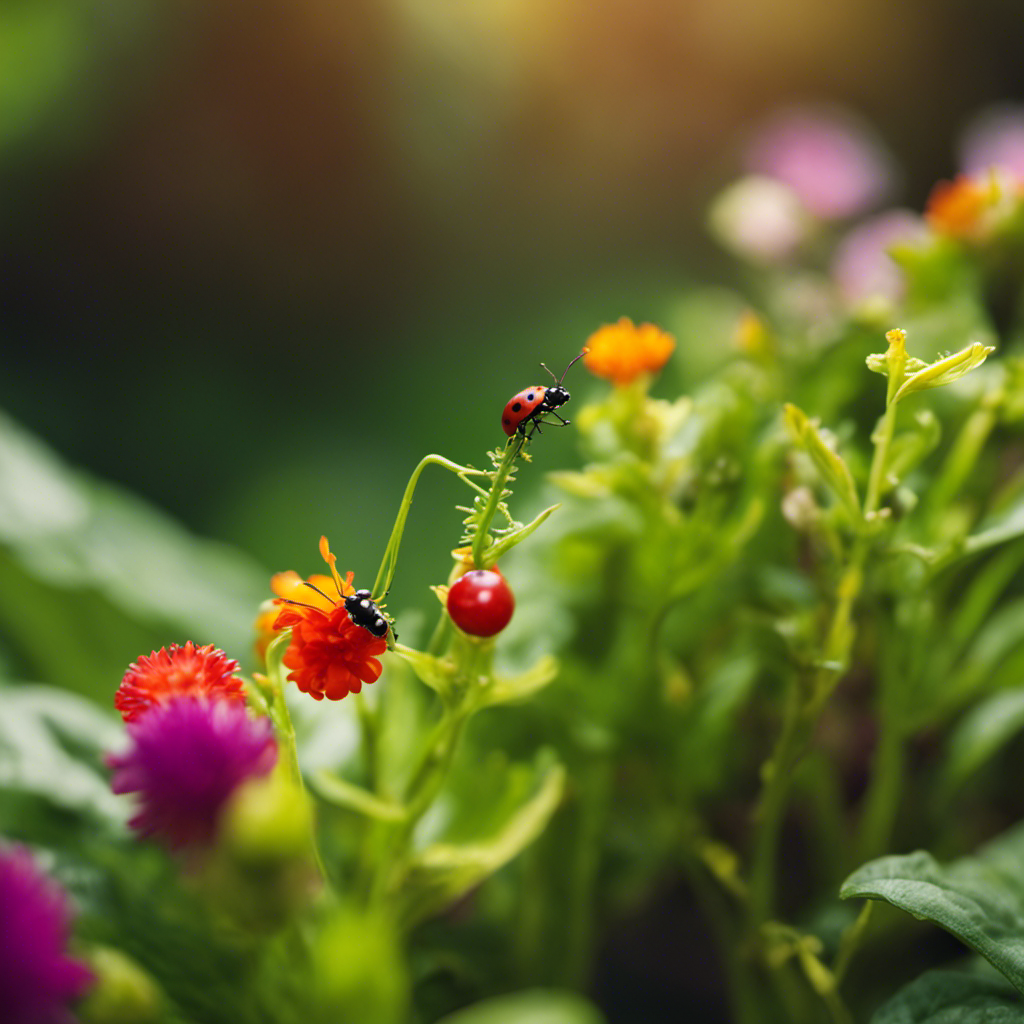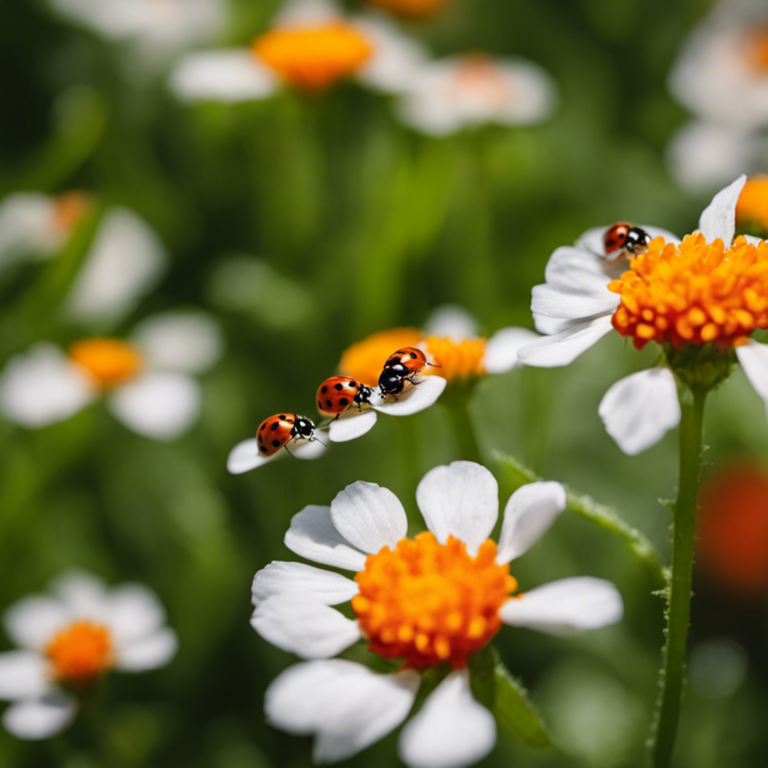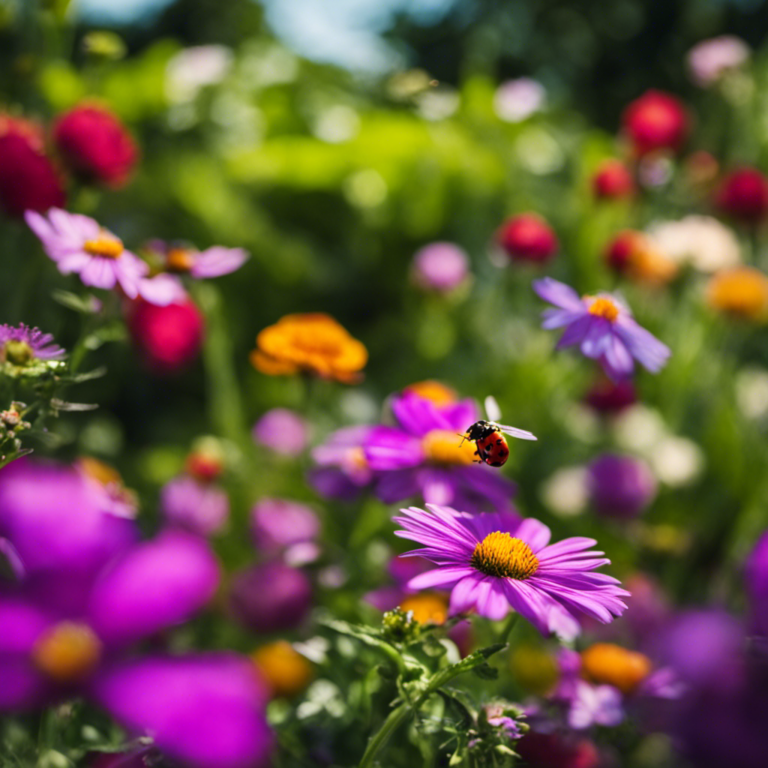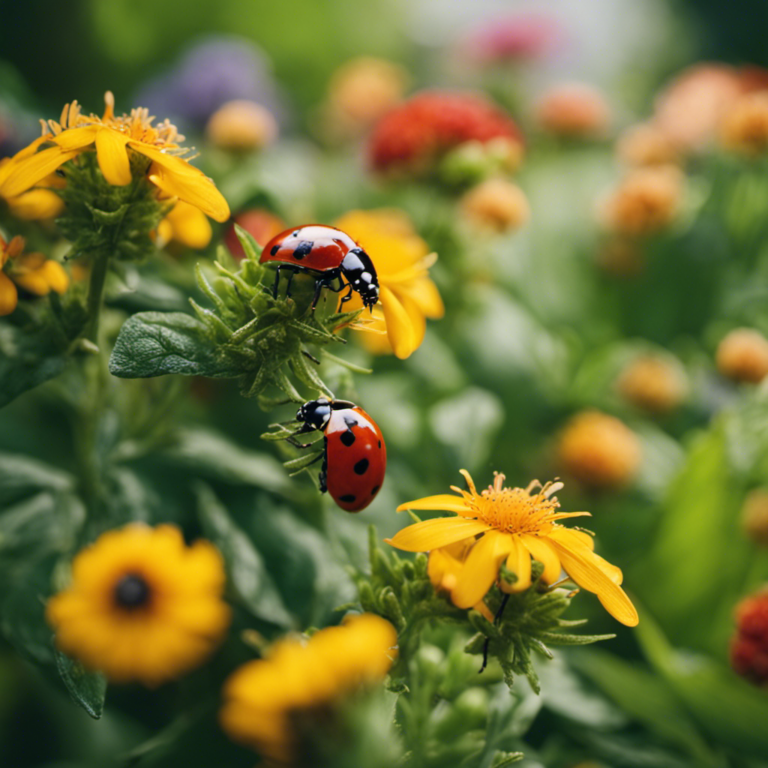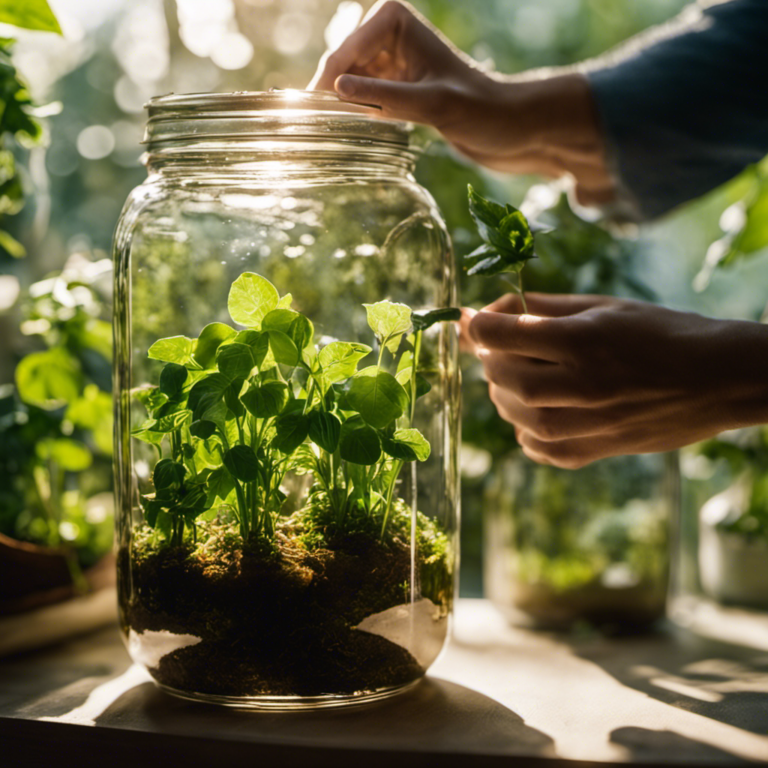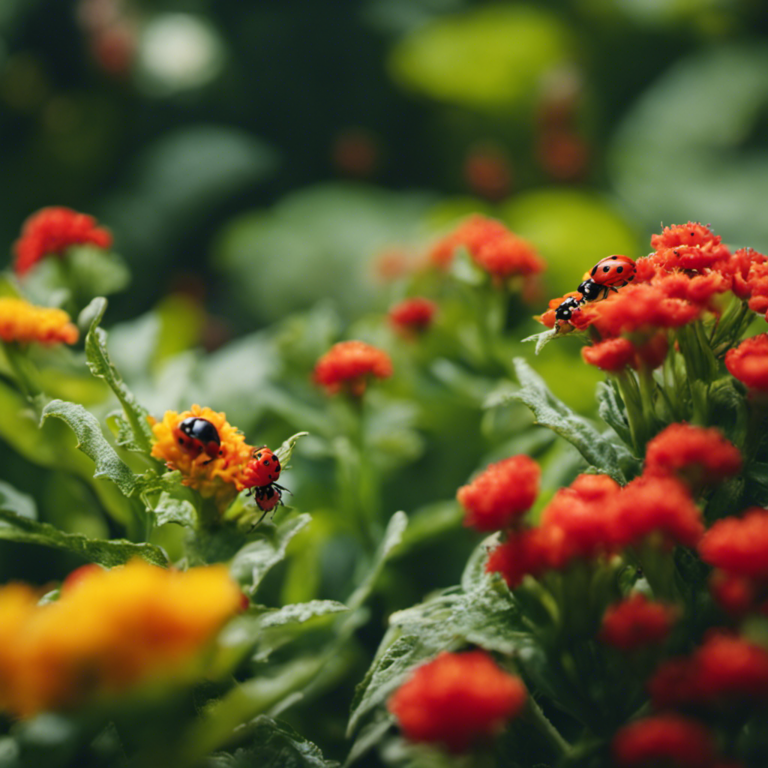Are pests wreaking havoc on your garden, causing frustration and damage to your plants? If so, it’s time to consider the benefits of natural pest management.
By using effective organic pest control methods, you can maintain a balanced and thriving garden. Not only will this protect your plants, but it will also promote a sustainable and eco-friendly approach to gardening.
Let’s explore how natural pest management ensures bountiful gardens and allows you to enjoy a flourishing outdoor space that benefits both you and your community.
Key Takeaways
Why Natural Pest Management is Essential for Thriving Gardens
Natural pest management plays a vital role in maintaining healthy and productive gardens. By employing effective organic pest control methods, gardeners can prevent infestations and create a harmonious environment in their gardens. This sustainable approach not only ensures the well-being of plants but also protects the surrounding ecosystem.
As the wise saying goes, "Prevention is better than cure." By taking proactive measures to naturally prevent pests, gardeners can enjoy abundant gardens without relying on harmful chemicals. It is crucial to prioritize the health and sustainability of our gardens by embracing natural pest management practices. This not only benefits our plants but also contributes to a healthier environment for all living beings.
Benefits of Natural Pest Management
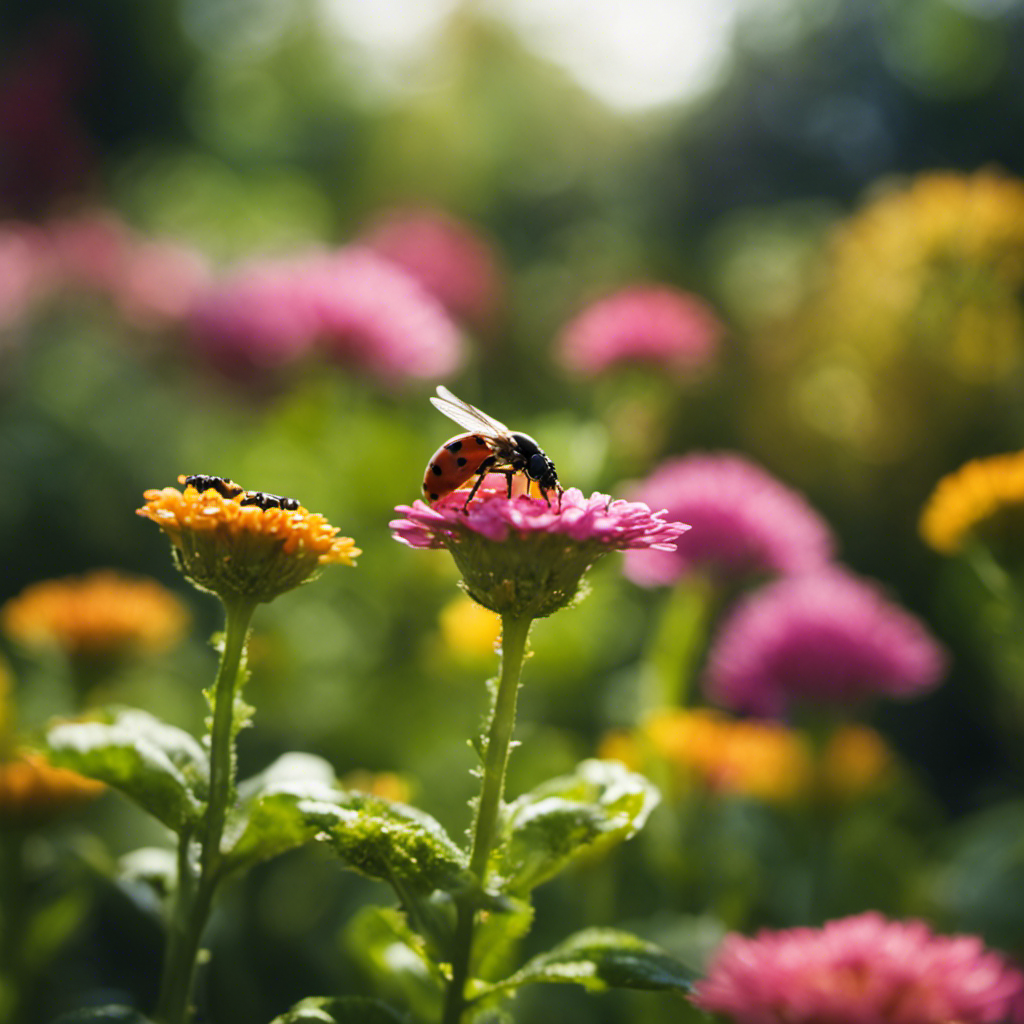
Benefits of Natural Pest Management
When you choose to use natural pest management techniques, you can experience the advantages of having fewer pests and healthier plants.
Methods such as utilizing beneficial insects, practicing companion planting, and employing organic pesticides have been proven effective in controlling pests while minimizing harm to the environment.
By attracting beneficial insects like ladybugs and lacewings, you can naturally reduce the populations of harmful pests such as aphids and caterpillars.
Companion planting, which involves growing certain plants together, can also deter pests by confusing their senses or repelling them with their natural scents.
Additionally, organic pesticides derived from natural sources like neem oil or garlic can provide targeted pest control without leaving behind harmful residues.
These natural pest management techniques not only reduce the need for synthetic chemicals but also promote healthier plants and a more sustainable approach to gardening.
Effective Organic Pest Control Methods
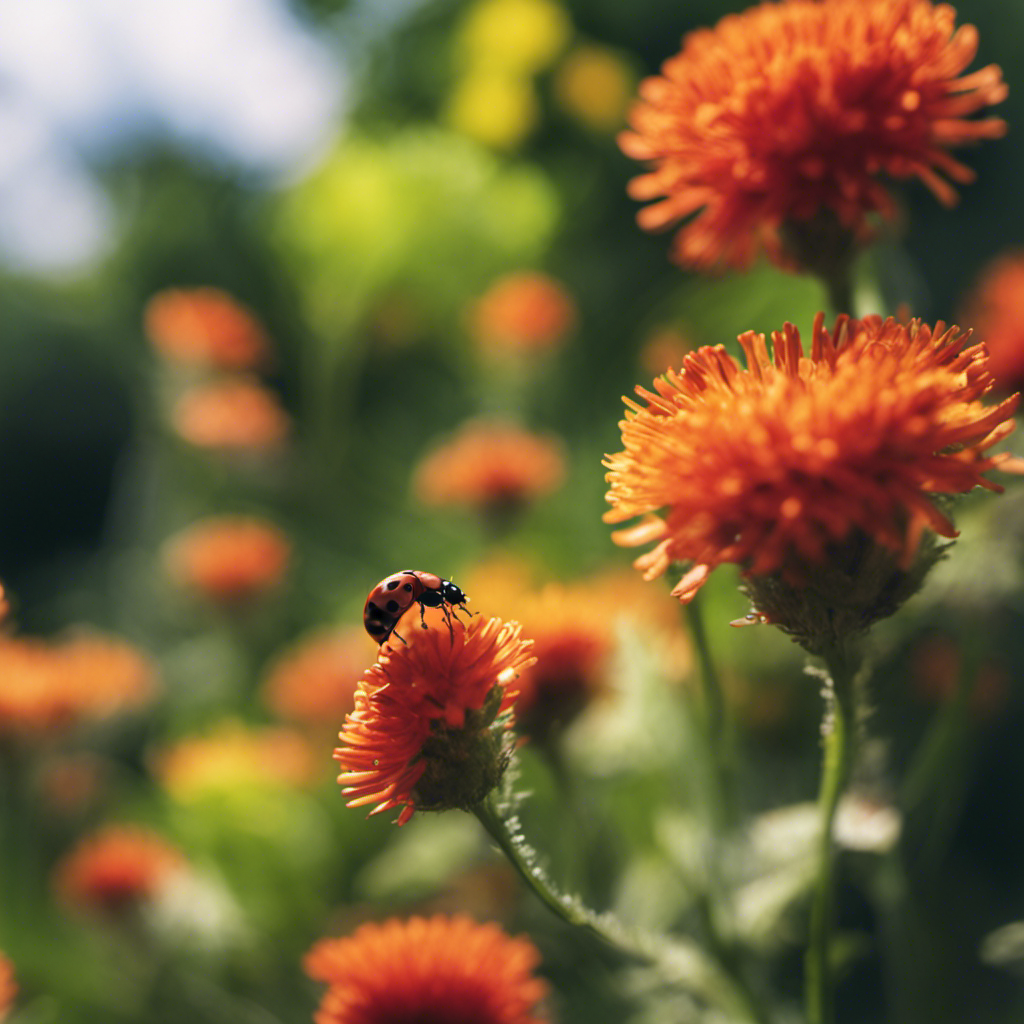
Achieving effective organic pest control involves implementing specific methods that can significantly reduce the presence of pests in your garden. These methods not only prioritize the environment but also provide non-toxic alternatives to traditional pest control practices.
One effective method is crop rotation, where you change the location of crops each year to disrupt pest life cycles. Another approach is companion planting, where certain plants are grown together to naturally repel pests. For instance, planting marigolds alongside vegetables can deter harmful insects like aphids.
Physical barriers, such as row covers and netting, can also be utilized to prevent pests from accessing your plants. Additionally, homemade remedies like insecticidal soaps and garlic sprays can be directly applied to plants to control pests.
Importance of Maintaining a Balance in the Garden
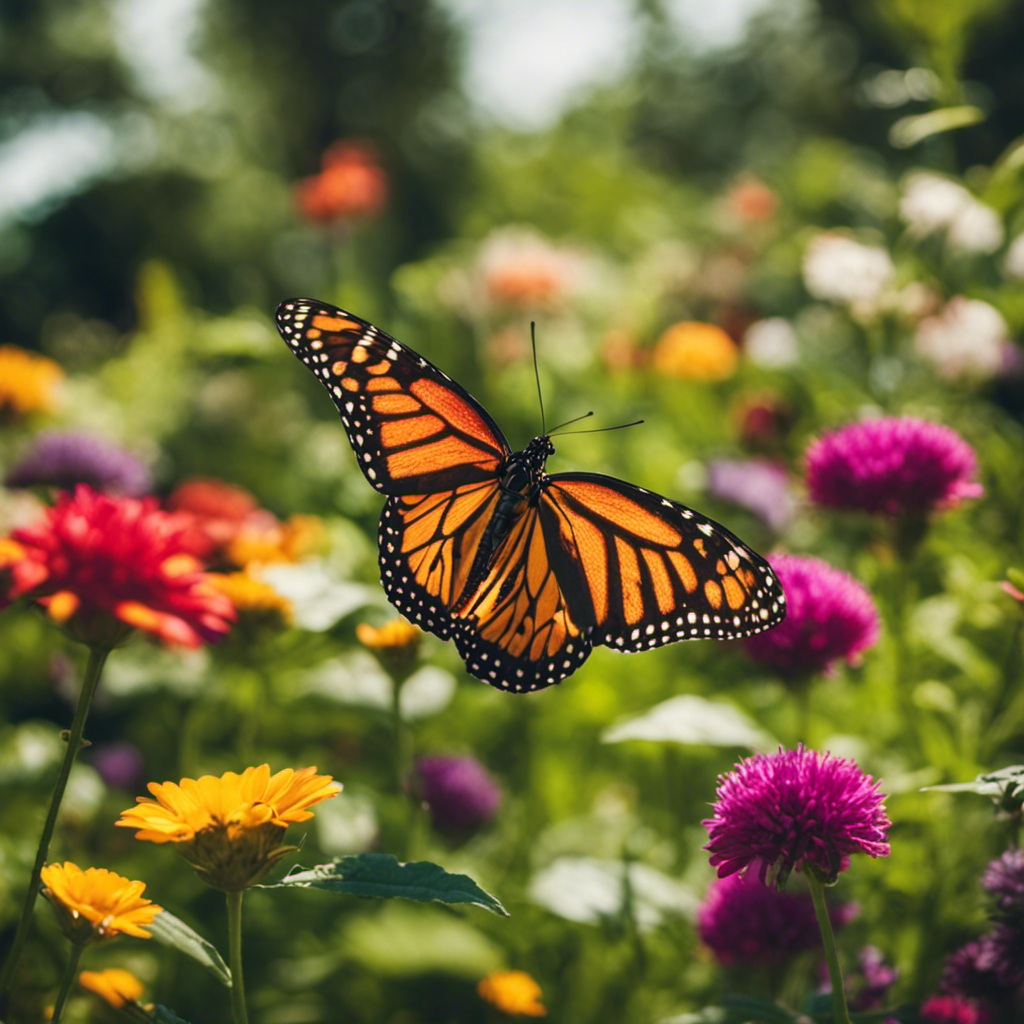
Maintaining a balance in your garden is essential for the success and health of your plants. It promotes ecosystem harmony and garden biodiversity, creating an environment that supports the overall well-being of your garden. There are three important reasons why maintaining a balance is crucial:
-
Pest control: A balanced garden attracts beneficial insects and animals that naturally control pests, reducing the need for chemical interventions. This promotes a healthier and more eco-friendly approach to pest management.
-
Nutrient cycling: A diverse garden ecosystem allows for efficient cycling of nutrients. Different plants have different nutrient requirements, and a balanced garden ensures that these nutrients are readily available. This leads to healthier and more vigorous plant growth.
-
Disease prevention: A balanced garden reduces the risk of disease outbreaks. When plants are stressed or lacking in nutrients, they become more susceptible to diseases. By maintaining a diverse garden with a balance of plants, you create a natural defense system that helps prevent the spread of diseases.
Preventing Pest Infestations Naturally
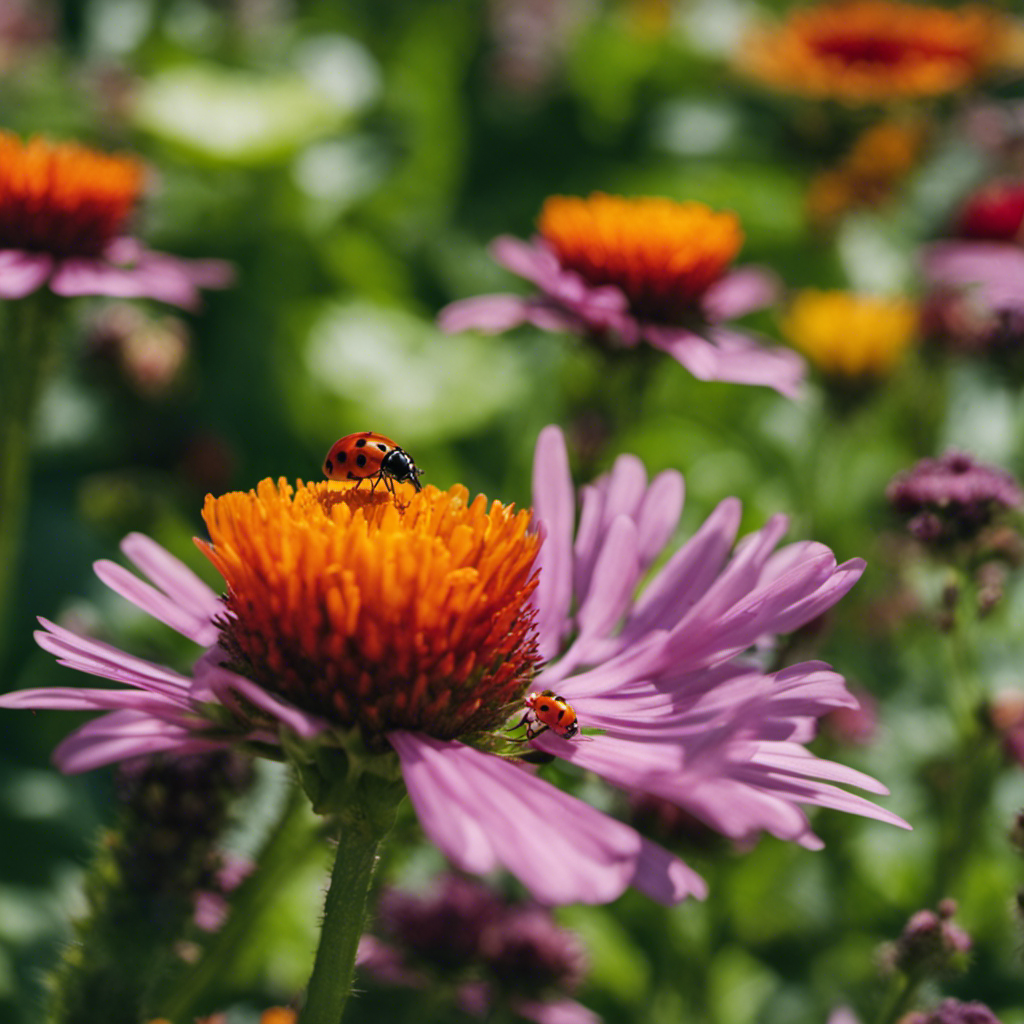
Preventing Pest Infestations Naturally
To naturally prevent pest infestations, you can use effective pest management strategies in your garden. One method is to employ natural pest repellents, like specific plants or substances, that discourage pests from entering your garden. Another approach is companion planting, which involves strategically planting certain crops together to deter pests and attract beneficial insects. By incorporating these techniques into your gardening practices, you can create a balanced ecosystem that naturally repels pests and promotes the health of your plants. Here is a table showcasing some examples of natural pest repellents and companion plants:
| Natural Pest Repellents | Companion Plants |
|---|---|
| Marigolds | Tomatoes |
| Peppermint | Cabbage |
| Garlic | Roses |
| Chrysanthemums | Carrots |
By utilizing these natural strategies, you can prevent pest infestations without the need for harmful chemicals, ensuring a bountiful and thriving garden.
Sustainable Solutions for Pest Control
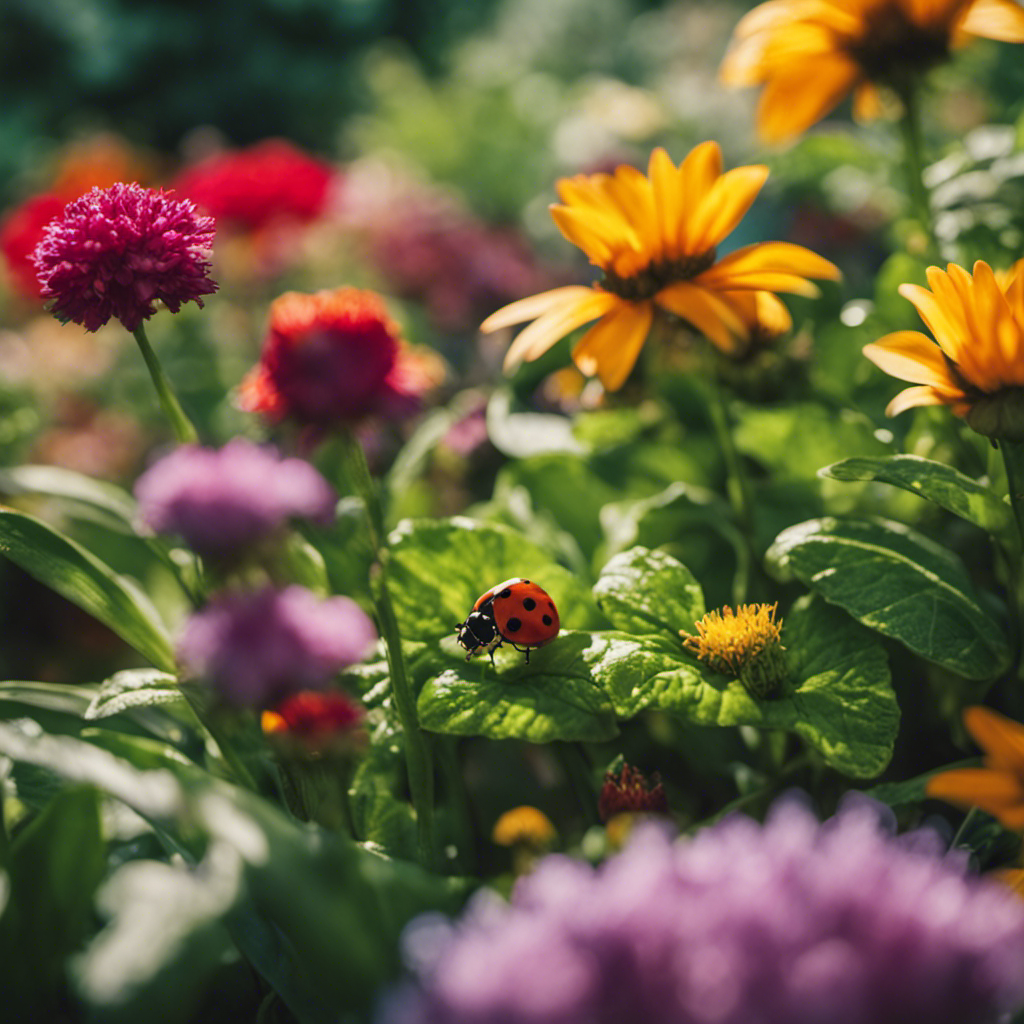
Implementing sustainable solutions for pest control is crucial for maintaining a healthy and thriving garden. By adopting eco-friendly pest control methods and practicing sustainable farming, you can effectively manage pests without harming the environment or compromising the health of your plants.
Here are three sustainable solutions for pest control that you can implement in your garden:
-
Crop rotation: Rotating your crops each season breaks the pest life cycle and reduces the risk of infestations. Different crops attract different pests, so rotating them disrupts pest populations and promotes biodiversity.
-
Companion planting: Certain plants have natural pest-repellent properties or attract beneficial insects that prey on pests. By strategically planting these companion plants alongside your susceptible crops, you can naturally deter pests.
-
Biological control: Introducing beneficial insects or predators that feed on pests can help control their populations. Ladybugs, lacewings, and predatory mites are examples of beneficial insects that can be introduced to your garden to combat pests.
Conclusion
Natural pest management plays a crucial role in maintaining thriving gardens. By utilizing effective organic pest control methods, gardeners can prevent infestations and maintain a healthy balance in their gardens. This sustainable approach not only ensures the well-being of plants but also protects the environment.
As the saying goes, ‘Prevention is better than cure.’ By taking proactive measures to naturally prevent pests, gardeners can enjoy bountiful gardens without relying on harmful chemicals. It’s important to prioritize the health and sustainability of our gardens by embracing natural pest management practices.
